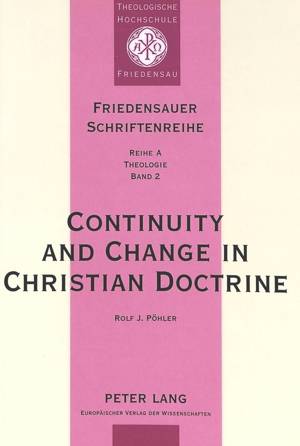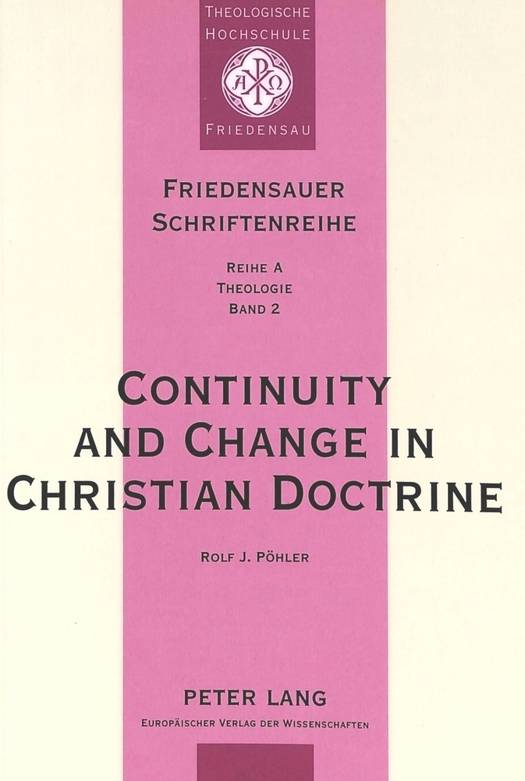
- Afhalen na 1 uur in een winkel met voorraad
- Gratis thuislevering in België vanaf € 30
- Ruim aanbod met 7 miljoen producten
- Afhalen na 1 uur in een winkel met voorraad
- Gratis thuislevering in België vanaf € 30
- Ruim aanbod met 7 miljoen producten
Zoeken
Continuity and Change in Christian Doctrine
A Study of the Problem of Doctrinal Development
Rolf J Pöhler
€ 63,95
+ 127 punten
Omschrijving
This book provides a scholarly and concise introductory treatment of the problem of doctrinal development. The author defines and delineates the problem, offers a historical-genetic survey of proposed solutions, and presents a systematic-typological analysis of possible responses to doctrinal change. The study concludes that doctrinal development involves complex theological and hermeneutical issues, that there are three fundamental approaches successively developed in history in response to the growing awareness of doctrinal change, and that the numerous theories of doctrinal development may be classified in three 'ideal' types representing the basic options available to the Christian church today. In the view of the author, a dialectic approach that is concerned for substantial continuity as well as authentic change can best avoid the twin dangers of doctrinaire immobilism and precipitate revisionism.
Specificaties
Betrokkenen
- Auteur(s):
- Uitgeverij:
Inhoud
- Aantal bladzijden:
- 156
- Taal:
- Engels
- Reeks:
- Reeksnummer:
- nr. 2
Eigenschappen
- Productcode (EAN):
- 9783631332016
- Verschijningsdatum:
- 1/12/1998
- Uitvoering:
- Paperback
- Formaat:
- Trade paperback (VS)
- Afmetingen:
- 148 mm x 210 mm
- Gewicht:
- 199 g

Alleen bij Standaard Boekhandel
+ 127 punten op je klantenkaart van Standaard Boekhandel
Beoordelingen
We publiceren alleen reviews die voldoen aan de voorwaarden voor reviews. Bekijk onze voorwaarden voor reviews.











